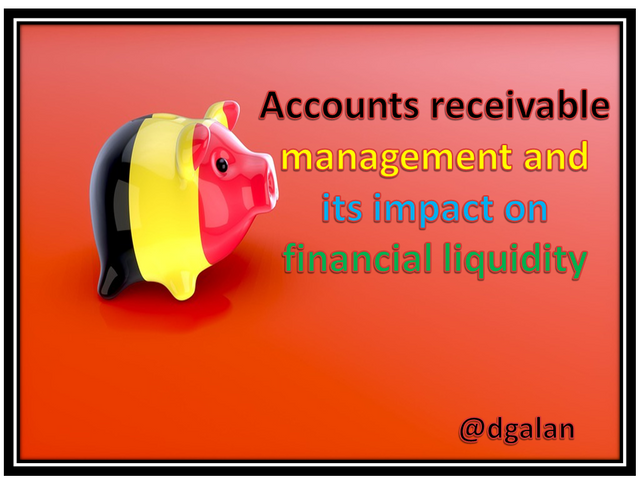Written by:Diomer Antonio Galán Rincón.
Bachelor's Degree.Public Accounting / MSc.Science of Higher Education.

Author: @dgalan,through Power Point 2010 tool, and using public domain image Pixabay
The economic situation of the country is characterized by a hyperinflationary crisis, which has generated difficulties in the performance of organizations, whether public or private, which are negatively affected due to the constant increase in prices, generating imbalances in their cost structure, in addition, there is a decrease in sales levels, mainly due to the loss of purchasing power of customers' salaries.
Maurera (2005) points out that "a good financial control procedure and a firm and solid accounting system constitute the basis of an effective financial administration". However, it is worth mentioning that the financial administration of the company is not only affected by internal factors, but also by external factors such as inflation, shortages of materials, inputs and products.

Image taken from:Pixabay
In this order, it is important to mention that there are a variety of strategies that management can resort to in order to gain access to new clients or maintain the already established ones. One of these is the credit policy, granting credit, allowing customers to obtain the merchandise and pay in a reasonable time, which is practical for the companies that apply for credit, because it allows them to obtain financing from external sources.
The direct effect of these strategies, is the creation of accounts receivable, in this regard Angueta (2014), points out, "accounts receivable is the name of the account where the increases and cuts linked to the sale of concepts other than products or services are recorded."
The main problem of accounts receivable is the recovery of the investment by the company, if to this is added an economy with hyperinflation, then, the recovery of money becomes limiting, affecting the inventory, due to the complexity of replenishing it, because the prices of products, in most cases, is higher than the sale, making it difficult for the company's liquidity.
I hope you like my article and I would appreciate all your comments.
bibliography consulted:

Hi @dgalan
In hyperinflationary economics, accounts receivable do not provide the desired benefit, on the contrary very high default interest rates are used that complicate the collection of these accounts.
Excellent article, thank you for sharing this information.
Happy Sunday.
Regards.
Downvoting a post can decrease pending rewards and make it less visible. Common reasons:
Submit
Greetings @ janettyanez. Undoubtedly any debt in these hyperinflationary times is difficult to collect, there is no theory that theoretically explains the situation of the country and companies are looking for strategies to be able to stay in time. However, it has been proven that accounts payable are best recorded as uncollectible accounts in order to have a better reflection of the economic situation of the company.
Thank you very much for your comments
Downvoting a post can decrease pending rewards and make it less visible. Common reasons:
Submit
Greetings friend @dgalan, in an inflationary economy like the one Venezuela is living, it would be a financial risk for companies to grant credits, because when the money returns to lost its value affecting the inventory replenishment. Even financial entities no longer grant credits of any kind due to this situation.
Downvoting a post can decrease pending rewards and make it less visible. Common reasons:
Submit
Greetings @Carlir , Very true your appreciation, but if there are some companies that run the risk and grant loans with interest rates in foreign currency to avoid losing the invested capital and to replenish their inventories again, however by the same hyperinflation of the country some accounts are difficult to collect hindering the liquidity of the same.
Thank you very much for your comments
Downvoting a post can decrease pending rewards and make it less visible. Common reasons:
Submit